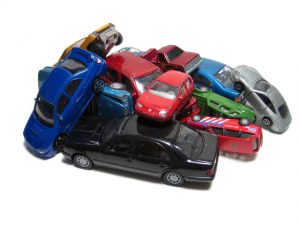You just got into a car accident. What do you do next?
Here are some things you should do when you are in this situation.
Immediately after:
Make sure nobody is hurt – check on the passengers in both vehicles and assess who needs medical attention. Call an ambulance (911) if necessary.
Do not admit fault – Be careful not to say things that can be used against you down the road. You don’t have to lie, but accident fault is determined by the police and insurance companies, not you and the other party.
Don’t get into an argument or dispute with the other driver – Emotions can run high in situations like this, but keeping your cool is so important when dealing with accidents. It can work in your favor down the road if you refrain from confrontation.
Exchange insurance information – Be prepared to share your information and get their information. If the other party is not forthcoming, there is a good chance they are uninsured. If this is the case, getting the police involved is important. In Illinois, drivers are required to carry a minimum amount of insurance on the roads. Only share information that is required by authorities and don’t sign any statement besides from your authorized insurance carrier representative.
Get other information – You should always get additional information, especially if the other party is uninsured. This should include the other driver’s name, address, phone number, driver’s license number, and license plate number. If you can, also record the make, model and year of the vehicle, and even the VIN number if you can get it. Be sure to take notes and photographs of the scene.
Call the police – If there is any damage to either car, or injuries to any parties, you must call the police and file a police report. This will be required by your insurance company and is the most accurate and legally recognized record of events.
Once you are off the scene and have done the necessary steps above, the next things to do are:
Tell your insurance company
If the damage is minor and there are no injuries, you and the other driver may decide to not file a claim with your insurance companies.
If the damage is minimal and fixed for less than your deductible cost, this may be a reason not to file a claim. There are some risks to this approach, as repairs might be more costly than you expect. Also, the other party might change their story or become uncooperative, so keeping your insurance company involved may protect you from that.
Always report the accident to your insurance company if there are injuries, however minor. A small bruise might turn out to be a larger medical issue down the road. Adrenaline from the accident might be hiding an injury, so be sure to get checked out if there is even a chance that you or somebody else might have gotten injured. Medical bills are costly, and these kinds of claims are the primary reason you have auto insurance.
You should only get an estimate from an auto body shop if you plan to pay for the repairs out of pocket, and not notify your insurance company after. But if you plan to file a claim, the estimate will come from your insurance company, and will be worked out between their adjuster and an auto body location that your insurance company provides.
Deal with the other driver’s insurance company
Be sure to discuss any incident with your Insurance Agency. The other party in the accident is responsible for contacting their own insurance company. At some point in the process, the other party’s insurance company will contact you to get a sworn statement on the event. Your insurance company will similarly contact the other party for the same information.
This is why it’s important to have a police report completed and filed with the police department. It gives you a legally recognized written description of the events surrounding the accident.
Common Questions:
Will your rates go up if you are not at fault?
Usually no. However, depending on your driving history and laws in your state, there is a possibility it could happen.
For example, if you have been involved in several accidents that were not your fault, the company may decide that you are a high risk driver because you were in several accidents within the past couple of years. Due to the common factor being you, some driving behaviors that you have might be causing these accidents.
I’m not planning to fix my car, do I still file a claim?
If the other party is at fault, you should file a claim, even if you don’t plan to repair the car.
If the car is older than 10 years, the damage is minimal, and you don’t mind another dent and a set of scratches, you may not want to file a claim. This is especially true if you are at fault, and filing a claim will result in a higher insurance premium.
However, if the damage is more extensive than you think and the cost to repair the vehicle is higher than its book value, the car is considered totaled. This makes it so that it cannot be covered by collision and comprehensive. When a car is totaled, your insurance policy might give you a payout for the book value of the car, making it easier to get a new vehicle. If you don’t go through your insurance for the accident, your coverage may not cover this event.


